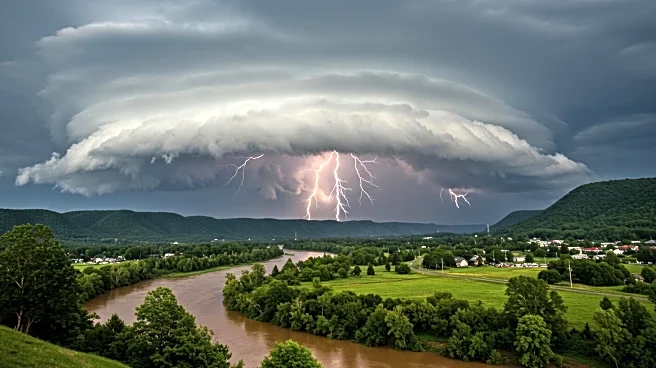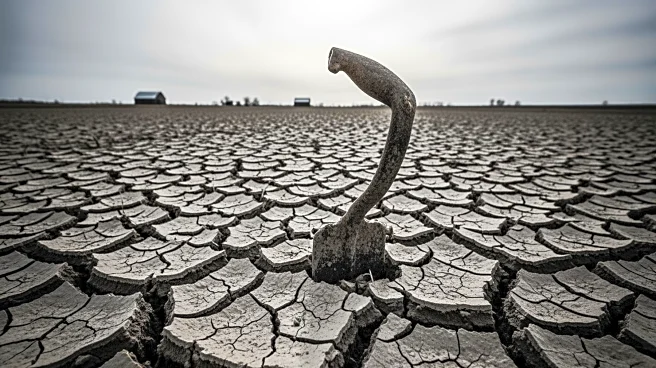What's Happening?
Heavy monsoon rains have triggered landslides and flash floods across northern Pakistan, resulting in the deaths of at least 199 people, according to national and local officials. The Khyber Pakhtunkhwa province has been the hardest hit, with 180 fatalities reported. Additional deaths occurred in Pakistan-administered Kashmir and the Gilgit-Baltistan region. The National Disaster Management Authority reported that most casualties were due to flash floods and collapsing houses, with 19 women and 17 children among the deceased. A helicopter crash during a relief mission also claimed five lives. The provincial government has declared several districts as disaster-hit areas, and a heavy rain alert has been issued for the northwest region.
Why It's Important?
The monsoon season is crucial for South Asia's agriculture and food security, but it also brings significant destruction. This year's monsoon began earlier and is expected to last longer, exacerbating the impact. Pakistan is particularly vulnerable to climate change, experiencing increasingly frequent extreme weather events. The torrential rains have already claimed over 500 lives this season, highlighting the urgent need for effective disaster management and climate adaptation strategies. The situation underscores the broader challenges faced by countries susceptible to climate-induced disasters, affecting millions of lives and livelihoods.
What's Next?
The provincial government has declared a day of mourning, with flags flying at half-mast and state honors for the deceased. The meteorological department has warned of continued heavy rains, urging residents to avoid vulnerable areas. As the monsoon season progresses, further flooding and landslides are anticipated, necessitating ongoing relief efforts and international support. The government may need to implement long-term measures to mitigate future disasters, including infrastructure improvements and enhanced early warning systems.
Beyond the Headlines
The disaster highlights the ethical and humanitarian challenges posed by climate change, particularly in developing countries. It raises questions about global responsibility and the need for international cooperation in addressing climate impacts. The increasing frequency of such events may lead to long-term shifts in population dynamics, economic stability, and regional security, necessitating comprehensive policy responses.








